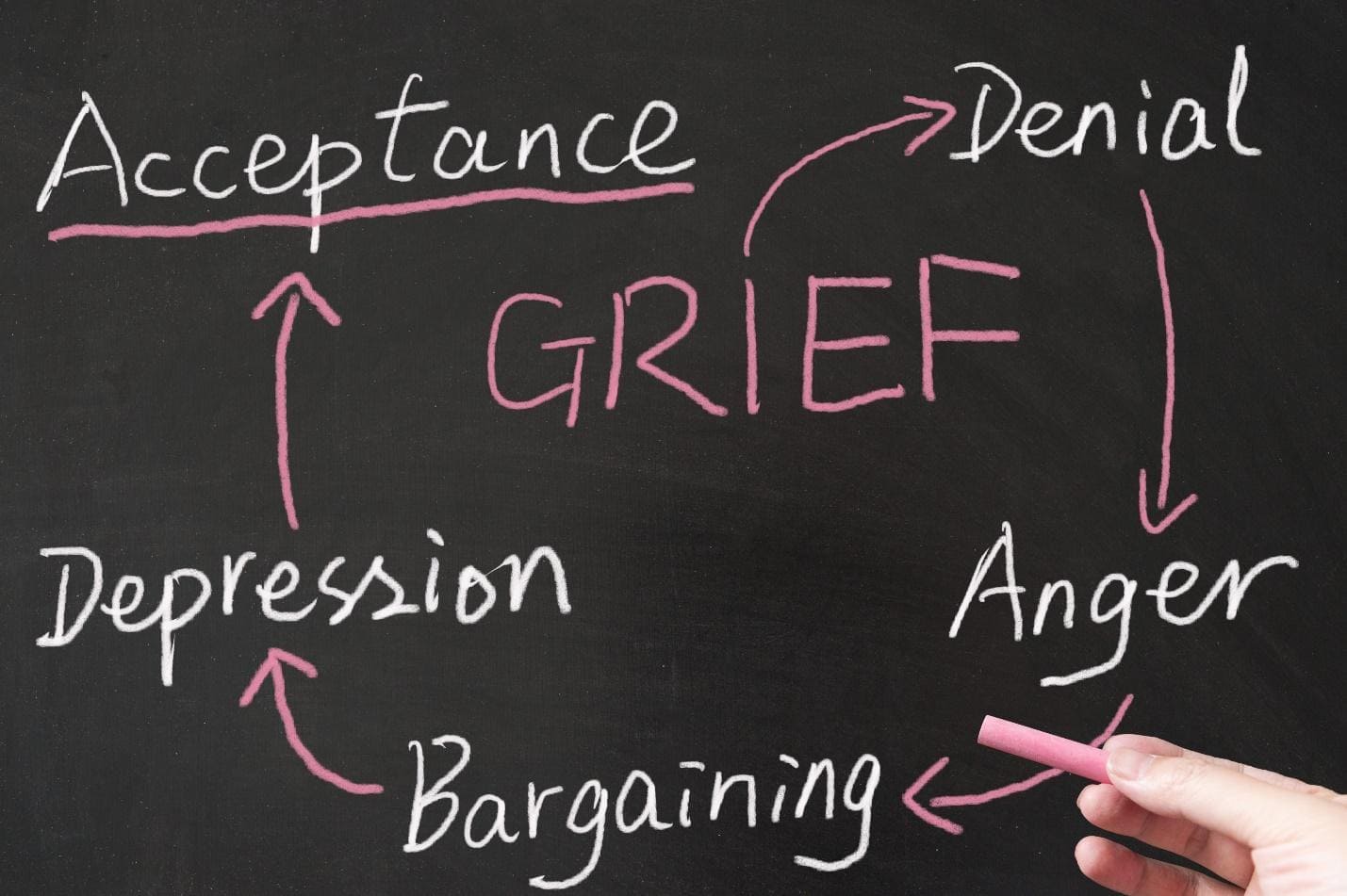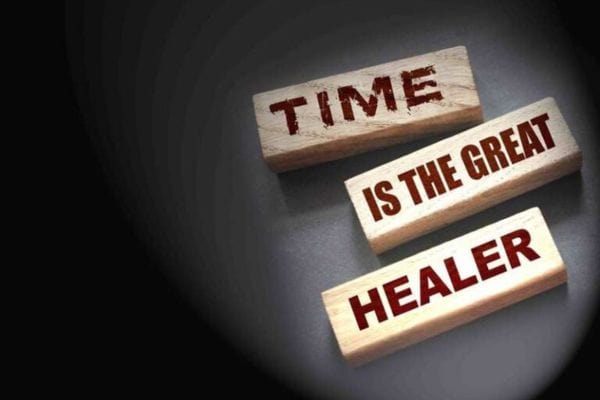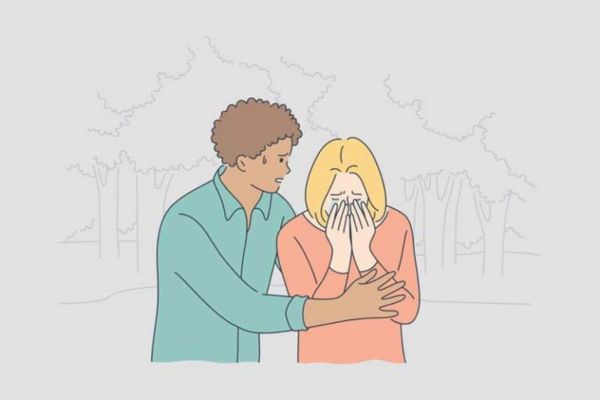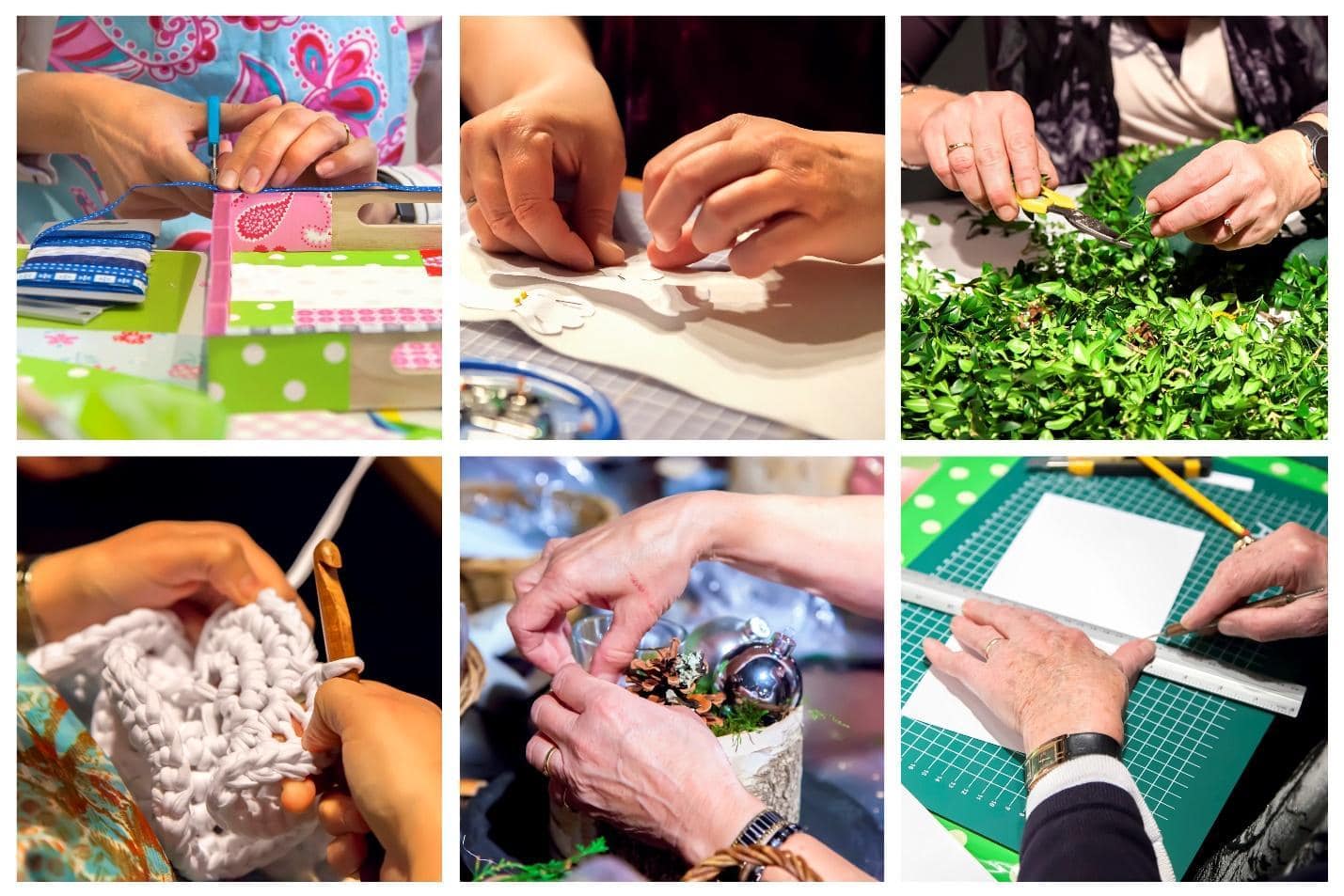Grieving allows us to heal. To remember with love rather than pain. – Rachael Naomi Remen
What is Grief, Fear, and Despair?
Grief, fear, and despair are inter-connected and are an innate part of human experiences. At some point in our life, we experience the dark and painful emotions of grief, fear, and hopelessness. Grief is a normal and natural reaction to a loss of any kind. They show up in our lives in different ways, and they can interfere with our social functioning and work life. It is essential to understand and manage our emotions, especially what we call our darker emotions.
As a counsellor and psychotherapist, I have often worked with clients to heal from their traumas of grief and loss. Many a time, we do not permit ourselves to attend to our feelings of grief and loss. We avoid them. Avoidance can lead to dysfunctional coping mechanism.
How Do Dysfunctional Grief, Fear, and Despair Impact Our Lives?
Grieving is a process. However, when a person experiences intense grief and despair, this person may not follow the normal grieving process. When they shun their feelings of grief, fear and despair, the results can be very damaging and destructive. Aversion to notice these feelings can be at the root of many psychological disorders. To put an end to the intense emotional pain, an individual may resort to maladaptive practices.
- Overwhelming grief and despair can trigger anxiety, chronic depression, PTSD and more.
- Overwhelming or unconscious despair can lead to severe psychic numbing.
- Grief can trigger addictions to alcohol, drugs, sex and others.
What Are the Signs of Normal Grieving Process?
Grief is an individual process that has momentum of its own.
- It can make you question your own life.
- It is normal to feel a sense of numbness.
- Grief can show up physically in the body, like headaches, dry mouth, chest and stomach pain, fatigue, a lower appetite, an increased appetite, insomnia and nausea and more.
- Common feelings among those Grieving can include agitation, anger, anxiety, betrayal, despair, emptiness, fear, guilt, helplessness, impatience, shock, shame and uncertainty.
A person usually goes through normal grieving stages as described below.
What Are the Stages of Grief and Loss?
Psychiatrist Elisabeth Kübler-Ross developed the five stages of grief. She observed terminally ill patients and wrote about them in her book, On Death and Dying. It states that many go through the five stages of Denial, Anger, Bargaining, Depression before there is Acceptance. However, a person may not go through the stages in this specific order, nor is it necessary to go through each stage of grief. Some may skip a stage or two in their process of Grieving. Briefly about the five stages of grief:
1. Denial
Usually, when we lose someone very dear to us or face a relationship breakdown or financial losses, we may be in denial. Examples
- “No, this is not happening.”
- “No, my father has gone for a trip and will be back soon.”
- “We will get back together when he/she cools down”.
2. Anger
We may move on to being angry. This anger is usually at God or oneself or someone close to us or even the person we may have unfortunately lost. For example,
- “Why do you always do this to me?”
- “Why do I have to face all this rubbish?”
- “This doctor has failed to save my family. He or She is rubbish.”
3. Bargaining
To avoid deep pain, especially if we lose someone precious to us, we are willing to do anything. We are ready to bargain. Usually, in this stage, we identify our weaknesses and are swamped with guilt. We try to negotiate with higher authorities like doctors and God. For example,
- “Give me one chance, and I will change.”
- “I will be a good daughter. Just let my mother live longer”.
4. Depression
Our overwhelming pain can isolate us from others. We may want to stay with our negative emotions and growing sadness. Depression is a normal part of grief though it can be challenging for the onlookers (who love them).
5. Acceptance
We are finally able to move to Acceptance. This time can be a few days or a few months. We start accepting the significant loss and adjusting to the new life. We make changes to be at peace with our emotions.
- “My mother was suffering a lot. God has called her to heaven. She is doing well there. She will want me to move on in life.”
How Can I Heal from Grief?
1. Speak or Write Your Story!
Speaking or writing our stories helps us come to terms with our loss and reconstruct meaning in our lives. Talking about our grief with someone supportive can serve as a positive outlet to release our feelings and emotions. Sometimes just the act of talking can be healing. Counselling is also called talk therapy, as talking is therapeutic. Hence, it’s better to talk out loud than to hold everything inside. And there are times when you may be scared of sharing your innermost precious emotions. That’s okay too. Go ahead and try to pen down or draw your emotional journey. Express your emotions.
2. Give Yourself Permission to Grieve
Does your upbringing or culture allow you to express grief? Were you told as a child, “Don’t be sad”? Maybe it’s time to say to yourself:
- “It’s okay to be sad and feeling low.”
- “It’s okay to let myself feel what I am feeling.”
- “I don’t need to feel guilty about being sad.”
Allow yourself to feel what you feel without judgement. Grief is painful, but it is a natural emotional response when we experience a significant loss. We all process grief differently, and it can feel overwhelming. Many times, our upbringing or our cultural values hinder us from grieving. However, it’s essential to embrace the sadness, anger, shock and any other emotions that may come up.
3. Give Yourself Time
In today’s fast-paced world, time is a precious commodity. Many times, we are not given sufficient time to heal. There can be many reasons for that. Like workload, financials, being a parent, and others. However, there is no time limit for grief.
They say time is a healer. Usually, the intensity of grief and despair will change with time. You may start to notice a shift between your bad days and good days. You will begin to experience happiness again. You learn to develop your coping mechanisms for triggers like anniversaries, or a place visited together, and so much more.
For some grievers, the suffering never truly goes away. A loss of a loved one is painful, and it takes time to heal. Time cannot erase your connection with a loved one. The bond that you share is a permanent connection, and nothing can take that away from you.
4. Practice Self-Care
Practice self-care and get lots of rest. Grieving is emotionally and physically exhausting. Give yourself permission to rest without judgement and be kind to yourself. Nourishing yourself while Grieving can look like:
- Calling or visiting a friend or family member.
- Going to therapy or attending grief support groups.
- Holding space for your loss and allowing yourself to process it however you need to.
- Finding coping mechanisms that help, such as breathing or guided meditation.
- Journaling.
- Focusing on what you can control.
5. Get Involved in a New Activity
Grief can feel lonely, and your mind might constantly be thinking about death and the absence of a loved one. It can be therapeutic to get involved with something new that can provide you with a bit of joy. It will help distract you so your mind and body can take a break from the grieving process.
I know of a person who grieved for her son’s death by cancer. She now works as a cancer ward volunteer to be there with children who may need her services.
6. Seek therapy
Lastly, if you need help, reach out to a therapist. In our culture, there is a stigma attached to therapy. However, it’s time to learn to look after yourself. A therapist can provide a safe and protected space for you to visit to understand your loss in all its forms. Many therapies like Eye Movement Desensitization and Reprocessing or Brainspotting help work with the memories that we struggle with within our present.
How Can I Support Someone Who Is Grieving?
1. Empathy, not sympathy
Provide empathy and not sympathy. Feeling empathetic means that we understand how another person is feeling and perhaps have a shared experience. Instead of looking from outside, we are stepping into the other person’s shoe. Empathy does not discount another person’s emotions or thoughts of the griever. We do not talk about ourselves. For example, “It must be tough for you…” is empathy. “Ah, it can be tough now, but you know, give it time, and you will be a bounce back. I went through the same experience.” What difference do you notice? The video by Brene Brown below beautifully explains the difference between Empathy and Sympathy.

2. Safe Space
Provide a safe space for them to express how they feel. It will include providing a listening ear, no timelines on the grieving process, and no judgment. Allow long silence in your conversations and let them know that you are there for them to feel like talking. It’s okay to be there for them, whether they wish to discuss or remain silent. Also, allow the griever to tell you that you are not helpful. No one is a mind reader, and sometimes it’s good to ask, “Is this helping you”?
3. Give Permission to Take Time to Grieve
Please encourage them to take their time as they recover from the loss. Everyone grieves differently. There is no right or wrong way to grieve. However, if the time is too long, like beyond six months, as a caregiver or someone supporting your loved one, you may need a diagnosis for the griever to rule out Post-Traumatic Stress Disorder (PTSD) or Severe Depression. However, if the diagnosis is for a mental illness, you will have a chance to be prepared to help them heal with therapy and medications.
4. Normalise Grieving
Assure them that they are not alone in how they feel. Whether you have experienced grief yourself or not, other people know what it’s like to experience distress. “It’s okay to be sad” Please encourage them to find a community of supportive people who get it. Please empower them to seek comfort and support in any way possible, whether through counselling or a support group.
To truly help someone, let them know that it’s okay to feel how they feel.
What Is Grief Shaming?
Grief shaming is harmful and toxic to anyone grieving. Grief is an involuntary response filled with emotions, meaning that everyone has the right to grieve without judgement. No one gets to tell you that your grief is wrong.
Signs of Grief Shaming may include:
- Griever is encouraged to “put on a happy face” or to mask their true feelings.
- Griever has a strict timeline to grieve or told to “get over it”.
- Many times out of concern, family or friends may ask only to think positive thoughts.
- The griever’s loss has been discounted compared to another person’s experience. “Oh, your loss is nothing, you have lost your mother, but you still have your father, but look at that person; he or she has lost both their parents at the same time.”
Grief Shaming Can Sound Like:
- You didn’t know them that well.
- It would help if you got over it.
- It would be best if you moved on.
- Are you still crying over this?
- You don’t seem sad.
- Do you care? You’re not even grieving.
How Can I Grieve During a Pandemic?
Most of us have experienced a loss, or we may have heard of someone close to us losing someone during the Covid pandemic. I lost my mother during this pandemic. I was unable to travel to visit her during her last days. She was my best friend. She had had severe dementia for a few months and was bedridden in her last couple of months. I had not thought in my wildest dreams that I will not be there when she leaves for her heavenly abode. I went through a few stages of grief. I was in denial that she would leave me. I was angry with God for taking her away when I could not be with her. I bargained to let her live for a few more months to let me get my vaccination, and I could meet her.
Soon I had some form of acceptance about my mother leaving me. I ensured I spoke to her daily for long hours through what’s app video calls. Later, for her funeral rites, I was able to say my goodbye to her via zoom. I ensured I did all our religious rituals sitting afar and praying for her well-being. I thank God for the technological advancements that allowed me to be part of my mother’s life even from afar.
But during this time, I also went through my depressive stage. I wanted to isolate myself and not communicate with my friends and relatives. They respected my wishes and gave me the space I needed to grieve. However, I stayed connected with my siblings and my family members, and we are still taking our time to process our grief.
It’s okay to be frustrated and angry while dealing with losing a loved one during a pandemic. The pandemic can take away rituals and human connection that is necessary when coping with loss. In today’s challenging times, the fast-paced economy replaces many customary practices, celebrations of life and funerals with isolation and social distancing or delays and cancellations in gathering, which adds to a person’s suffering.
It may help to try and acknowledge that we are currently living in a different time. Acceptance can also help to manage our expectations of ourselves and others. It is important to remember that you are allowed to feel frustrated, angry and sad about how grief may look during a pandemic. Many may be grieving their loss of freedom or their ability to connect with people in meaningful ways.
Staying connected while Grieving is essential, and isolation can be more of a problem, especially during a pandemic. Reach out for support and stay connected with your friends and family, your doctor, a spiritual group, an online support group or a grief counsellor.
Are you Blaming Yourself?
Grief can cause a lot of anger and guilt, and we sometimes place a burden on ourselves. Regret is the emotion we experience when we look back on action and feel we should or could have done something differently.
People around me told me, “It’s sad you could not visit your mother.” And this did trigger guilt. It’s not easy to let go of guilt and this sense that we are not in control. However, many times we have to give ourselves the time to grieve. When I had processed my grief to a large extent, I was able to look at my guilt and explore the different options I had.
Questions I asked myself.
1) “Would my mother want me to travel to meet her knowing that I have a chronic condition?”
2) “If I was in my mother’s place, would I want my children to risk their lives to meet me?”
3) “Was I able to devote time for her even though I did it via what’s app video calls?”
And I can now let go of my feelings of guilt, and I am starting to build my present without my mom. It is tough. I don’t think anyone says processing our grief is easy.
Grief is a usual accompaniment during the bargaining stage. We would have done anything to stop it, and we feel overwhelmed. Others think about how things could have unfolded differently. Those who experience grief may conclude that they could have done something differently that could have changed the outcome.
What Is Grief Outside of Death?
Grief is the reaction you have to a loss in your life. The loss can be a death but can also refer to other losses. Example
- Relationship Breakdown
- Pet’s death
- Moving or leaving behind a home
- End of a career
- Retrenchment
- Significant health changes
- Retirement
- Financial losses
- Empty nest
- Divorce
These experiences can lead someone to experience grief, and we know that everyone grieves in unique ways.
What Is the Bottom Line?
Whether you are grieving yourself or want to help someone who is grieving, the bottom line is that it’s okay to grieve. It’s a normal process, and there is no timeline for grief. Take the time to check in with yourself and check-in with those around who may be struggling. Let yourself grieve in your way and permit yourself to feel the loss of a loved one.

















